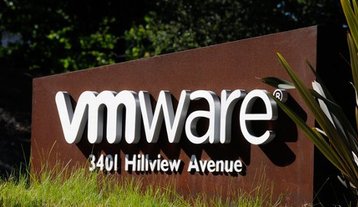The European Commission (EC) said that the proposed $61 billion takeover of cloud computing company VMware from semiconductor manufacturer Broadcom could restrict competition in the market for certain hardware components.
This has led the EC to notify US-based Broadcom of its decision to object to the takeover.
The EC's comments on the deal, which was first announced last May, come just a few weeks after the UK's Competition and Markets Authority (CMA) voiced similar concerns about the deal.
“As a result of this in-depth investigation, the Commission is concerned that Broadcom may restrict competition in the global markets for the supply of FC HBAs and storage adapters by foreclosing competitors’ hardware by delaying or degrading their access to VMware’s server virtualization software,” the Commission said in a statement.
“If the competitors of Broadcom are hampered in their ability to compete in these markets, this could, in turn, lead to higher prices, lower quality, and less innovation for business customers, and ultimately consumers.”
These comments from the EC come after it launched an investigation into the deal in December of last year, amid competition concerns.
Broadcom remains confident that the deal will get the necessary approval from regulators and expects the deal to close in the fiscal year 2023.
The company has the opportunity to reply to the EC's Statement of Objections, consult the Commission's case file, and request an oral hearing.
A brief history of the two companies
Founded in 1998, VMware was the first commercial company to provide Intel x86 servers with a virtualization platform or hypervisor. This enabled the same physical servers to support multiple guest operating systems, creating the idea of the "software-defined data center" and opening the door for cloud services that can be run by in-house IT systems or on public clouds.
Since then, VMware has been owned by EMC, and then by Dell, after the giant $67 billion Dell-EMC merger of 2015. During this time, it has operated more-or-less independently, initially attempting to compete with AWS in the cloud, but latterly billing itself as "the Switzerland of computing."
As for Broadcom, its roots go back to Hewlett-Packard. It spun out of HP in 1999 as part of Agilent and then was bought and turned into Avago Technologies by KKR and Silver Lake Partners. After multiple acquisitions, it bought fabless chip designer Broadcom Corporation in 2016, and the whole company adopted that name.
If this new acquisition goes through, the VMware brand will continue, offering enterprise software, with Broadcom's existing software division rolled into it, said Broadcom last year.
"Building upon our proven track record of successful M&A, this transaction combines our leading semiconductor and infrastructure software businesses with an iconic pioneer and innovator in enterprise software as we reimagine what we can deliver to customers as a leading infrastructure technology company," said Broadcom CEO Hock Tan, in May of last year.

